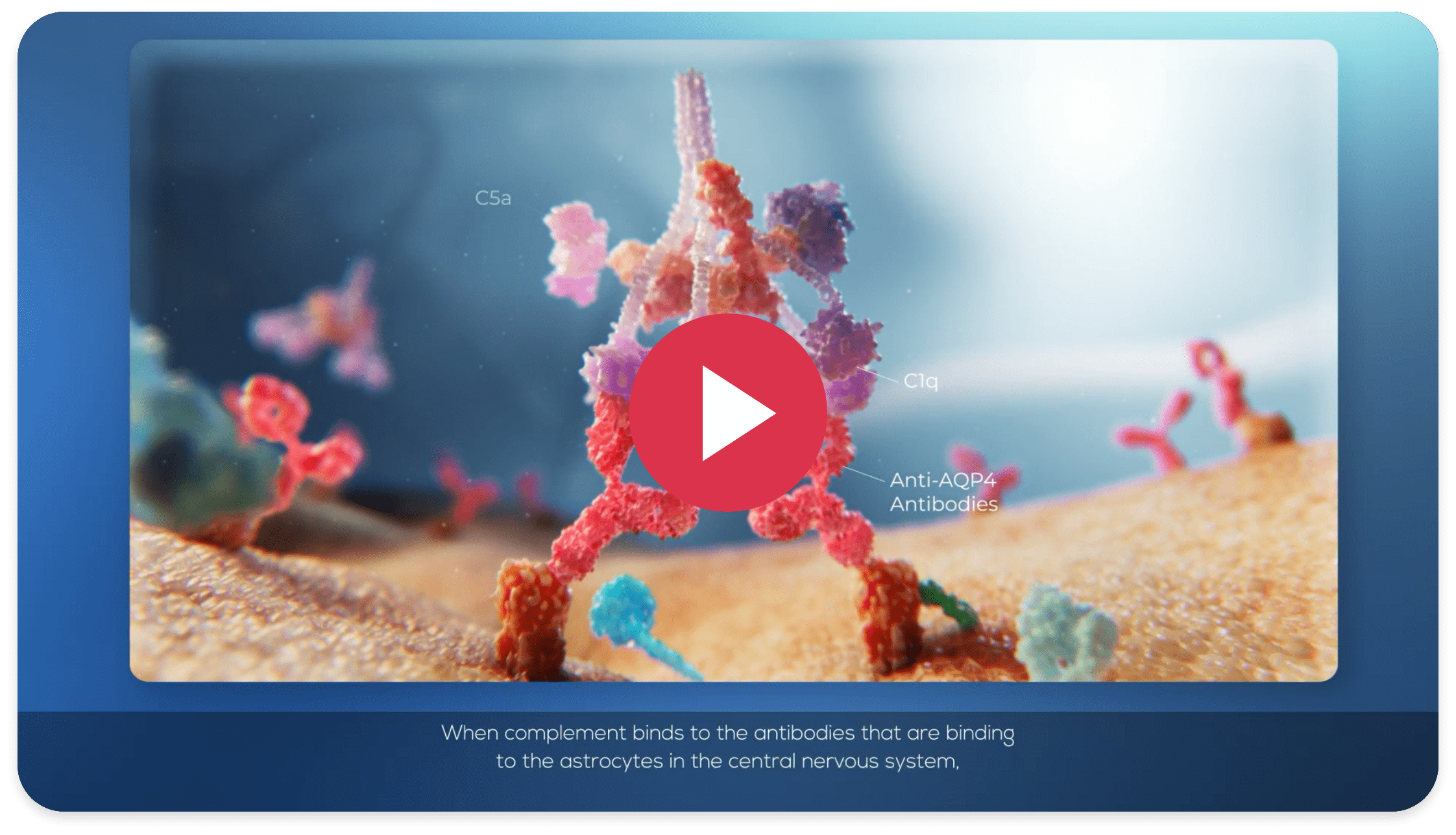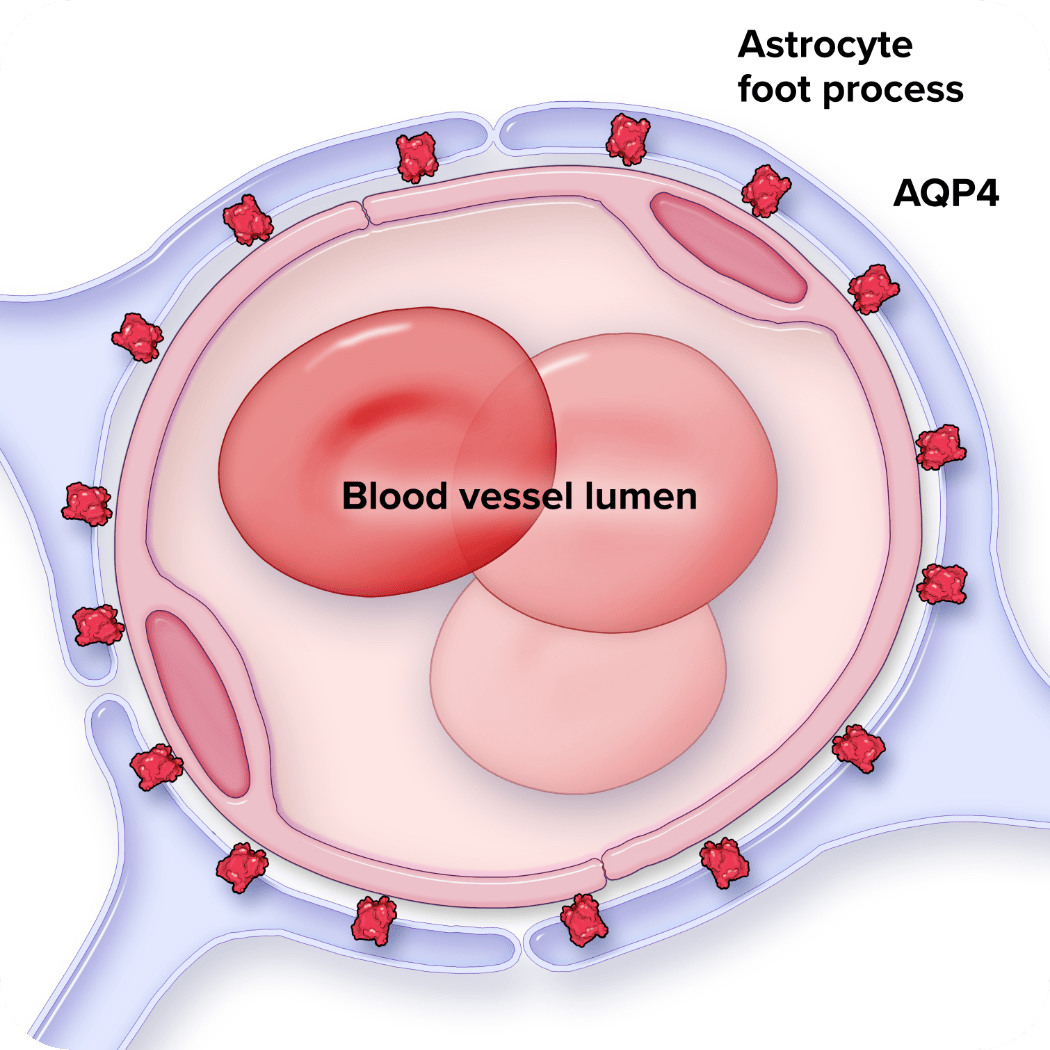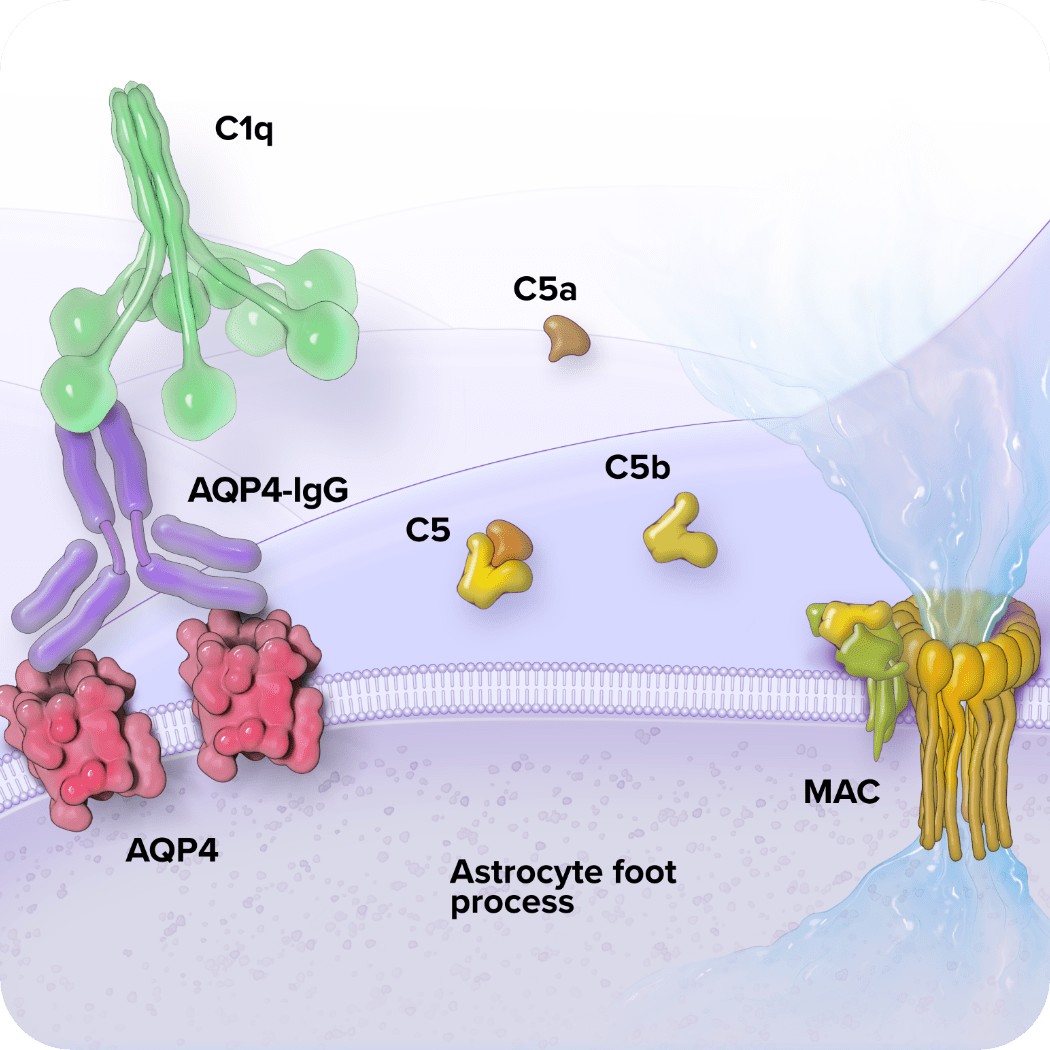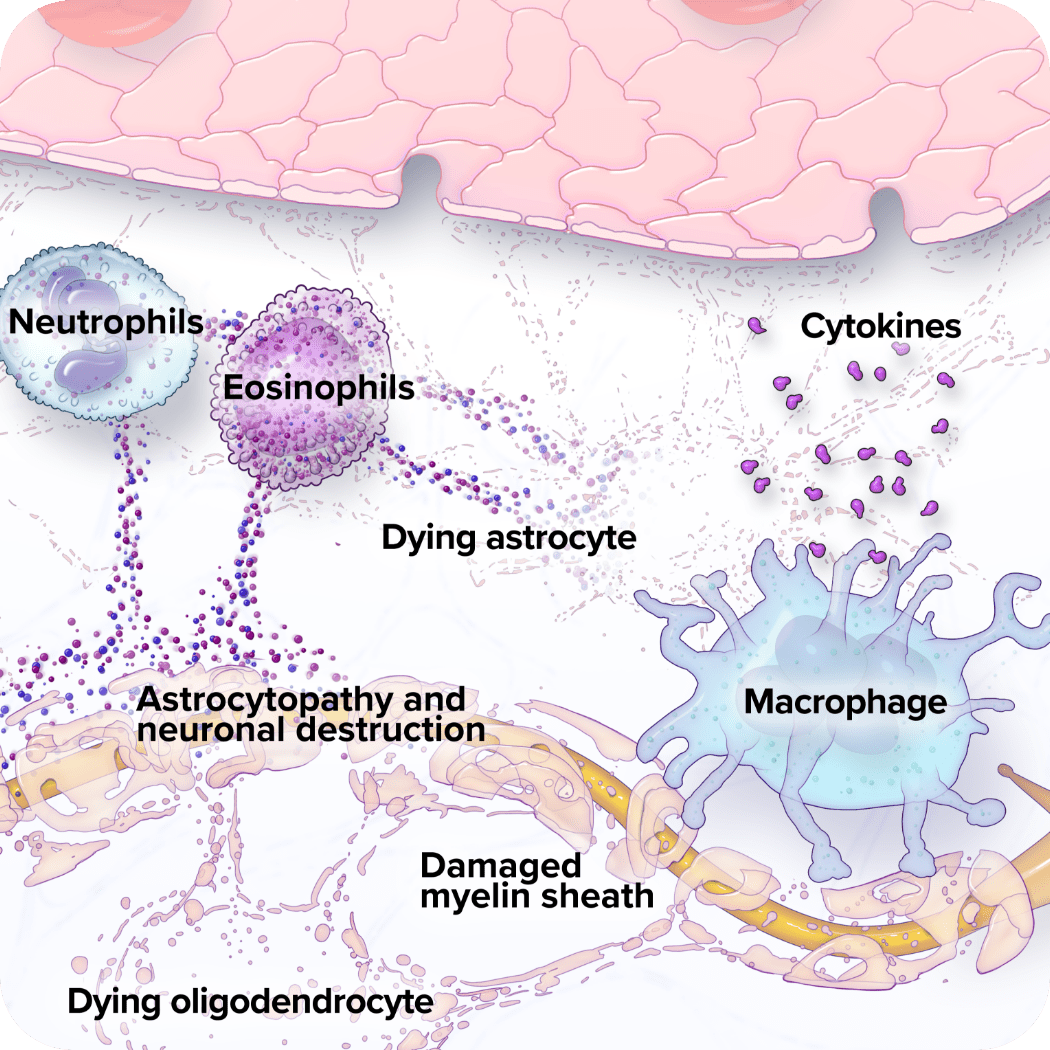IN PRECLINICAL STUDIES, COMPLEMENT ACTIVATION QUICKLY RESULTED IN PERMANENT DAMAGE TO THE CNS5,10

The complement cascade, or complement pathway, is a vital component of the body’s immune system, responsible for the formation of the membrane attack complex and bacterial lysis. Following injury or infection, the complement system acts quickly to detect, destroy, and eliminate microbes or cellular debris.6,7
Imbalances in the activation or regulation of the complement pathway are implicated in autoimmune diseases.8
In anti-aquaporin 4 (AQP4) antibody-positive NMOSD, terminal complement activation can lead to
inflammation and destruction of astrocytes.10,11

Anti-AQP4 antibody crosses the
blood-brain barrier and binds to AQP4 on astrocyte foot processes
in the CNS.

Anti-AQP4 antibody binding to AQP4 activates complement. When terminal complement is activated, the complement component C5 is cleaved into C5a and C5b.

This contributes to chronic inflammation and the formation of the C5b-9 membrane attack complex (MAC) that leads to cell lysis and perforation of the astrocyte cell membrane, resulting in demyelination and cell death.
